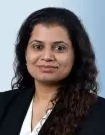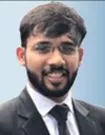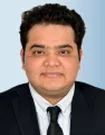Introduction
In the case of New Noble Educational Society v. CCIT and Another, 2022 SCC OnLine SC 1458, a three-judge bench of the Hon'ble Supreme Court of India (SC) inter alia (a) laid down important interpretational principles in relation to the scope of exemption provided to charitable educational institutions under Section 10(23C) of the Income-tax Act, 1961 (IT Act), and (b) made certain important observations as to what can be regarded as an 'incidental' activity in relation to education.
Background – law and facts
Under the IT Act, educational institutions are eligible for tax exemption (subject to satisfaction of specified conditions) under two separate sets of provisions i.e. (a) Section 10(23C) (Section 10 exemption) and (b) Section 11 (Section 11 exemption). While the scope of Section 11 exemption is wider in nature and available to an institution undertaking any 'charitable purpose' (ie relief to poor, education, medical relief, advancement of any other object of general public utility (subject to specified monetary threshold in case it involves trade or commerce for some consideration) etc), the Section 10 exemption covers certain specified categories of educational institutions only – one such category is "any university or educational institution existing 'solely' for educational purposes and not for purposes of profit" (Specified Exemption).
With respect to the Specified Exemption, there has been some jurisprudence as to how to interpret the word 'solely' ie whether it should mean that the educational institution should be exclusively engaged for the purpose of education, or whether only the predominant purpose of the institution should be education (Predominant Test). Basis an earlier SC judgement (though not in the context of Section 10 exemption), the prevailing view was that for the purpose of Specified Exemption, the Predominant Test would suffice.
In the instant case, the taxpayer was an educational institution and its application for registration under Section 10(23C)(vi) was rejected by the income-tax authority on the ground that inter alia (a) not all its objects mentioned in the charter documents were exclusively for educational purposes, and (b) it was not registered under the applicable state-specific laws regulating charitable institutions . The taxpayer challenged this before the Hon'ble Andhra Pradesh High Court (HC), but the same was rejected by the HC. The HC decision was challenged by the taxpayer before the SC.
Judgment
SC, taking cognizance of several judgements on this subject, on a literal interpretation, held that the Predominant Test will not apply for Section 10 exemption as the language of the law is unambiguous and that the word 'solely' will have to categorically be interpreted to mean exclusively and not primarily. Hence, if the objects of an educational institution enable it to undertake non-educational activities, such institution will not be eligible for being registered for the purpose of Section 10 exemption. In other words, all objects of such institution must relate to imparting or facilitation of education or be in relation to educational activities.
The SC also stated that though there is no bar to the generation of surplus by such educational institutions, the key aspect is that such surplus shall be generated while providing educational and related activities only (such as sale of textbooks, providing school bus facilities, hostel facilities etc).
With respect to the aspect of registration under state laws, though the taxpayer argued that obtaining the registration under state or local laws is not a pre-condition for seeking approval under the IT Act, the SC held that if an educational institution is required under such laws to obtain registration, then such registration should be obtained for the purposes of seeking approval under the IT Act as this would enable the income-tax authorities to not only ascertain the genuineness of the activities of educational institution, but also call for audited financial statements or other such documents for recording satisfaction about this aspect while processing the application.
The SC also stated that in the larger interest, this Judgment will apply prospectively (a) since it has departed from the prevailing view regarding the meaning of the term 'solely' and (b) to give time to potentially affected educational institutions to make suitable changes in their activities, charter documents etc.
Comments
Income-tax exemption for charitable institutions (particularly, educational institutions) has been a subject matter of debate in the past. The SC has taken a view that an educational institution is eligible to the Specified Exemption, only if its sole object is education or education related activities. There is also a clear emphasis on the importance of aims, mission statement, objects etc as spelt out in the charter documents of such institutions which are closely scrutinised before granting registration to such institutions. Hence, charitable institutions should take utmost care not only in the activities they undertake but also in the preparation of their charter documents to ensure that they are in line with such interpretational principles.
Further, given that 'education' as a charitable activity is covered in Section 10 as well as Section 11, SC's observations in relation to the scope of activities incidental to the main object of education (such as providing textbooks, transport facilities, special learning courses, hostel facilities etc) are relevant even in the context of Section 11 exemption.
The content of this document do not necessarily reflect the views/position of Khaitan & Co but remain solely those of the author(s). For any further queries or follow up please contact Khaitan & Co at legalalerts@khaitanco.com




